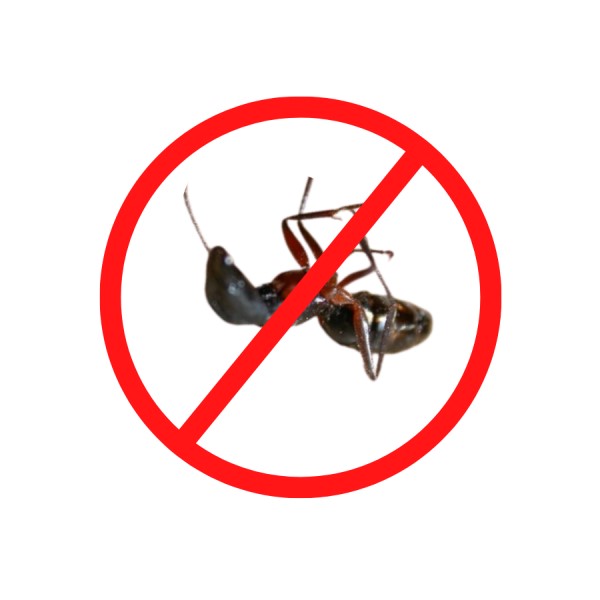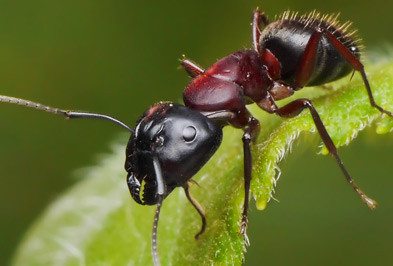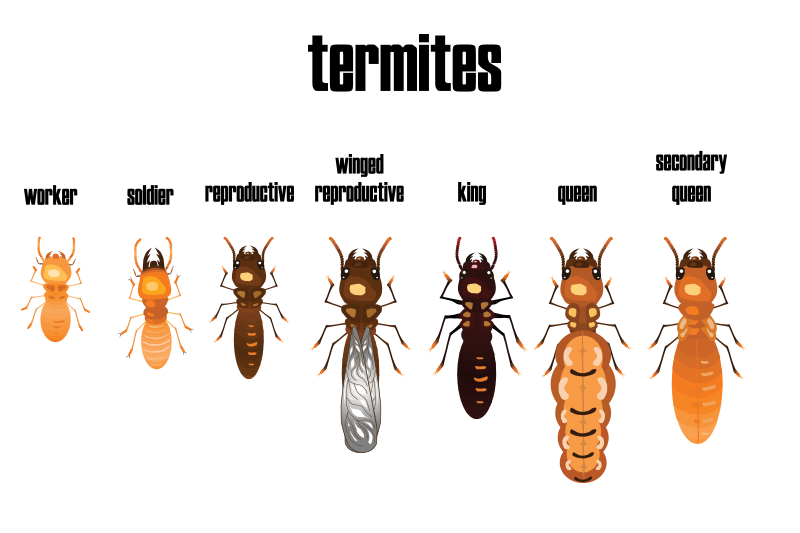Advanced Termite Control: Proven Methods for Getting Rid Of Termite Infestations
Wiki Article
Environmental Effect of Bug Control: Harmonizing Efficiency With Sustainability
The ecological influence of pest control is an essential problem that needs a delicate equilibrium in between attaining efficiency in managing pests and making certain sustainability of our ecosystems. As we make every effort to safeguard our plants, homes, and wellness from the risks postured by pests, the techniques we utilize can inadvertently harm the atmosphere. From the usage of harmful chemicals that leak into our soil and water to the unplanned consequences on non-target varieties, the repercussions of standard insect control methods are far-ranging. There are emerging methods that provide hope for an extra sustainable approach to pest management. These options not just aim to deal with the instant parasite troubles yet also take into consideration the lasting health of our planet.Harmful Chemicals in Insect Control
The utilization of dangerous chemicals in pest control postures substantial environmental and wellness threats that warrant careful factor to consider and mitigation approaches. Herbicides, insecticides, and pesticides are generally utilized to eradicate insects, but their extensive application can result in unplanned consequences. These chemicals can infect soil, water resources, and the air, influencing not just the targeted pests however also advantageous pests, wildlife, and people.
To attend to these risks, incorporated bug monitoring (IPM) methods are being advertised as a more lasting option. IPM involves a mix of techniques such as organic control, environment adjustment, and the targeted use of chemicals as a last resource (ant control kingsmountain nc). By embracing a holistic approach to pest control, we can reduce the environmental and health influences associated with unsafe chemicals while properly managing pest populaces
Influence On Non-Target Species
Taking into consideration the unintentional effects of insect control approaches, the influence on non-target varieties is a crucial facet that needs thorough examination. While pest control measures aim to target details insects, various other microorganisms in the ecological community may be inadvertently influenced. Non-target varieties, consisting of advantageous insects, birds, mammals, and also plants, can experience direct or indirect injury from chemical applications or organic control approaches.Chemicals can have sub-lethal or lethal results on non-target types. For example, pesticides made to battle a certain insect parasite may damage pollinators like bees or all-natural predators such as ladybugs. In addition, chemical residues can gather in the setting, affecting non-target organisms gradually. Biological control agents, if not species-specific, can present risks to unintentional targets, disrupting the environmental equilibrium.
To reduce the effect on non-target varieties, incorporated insect monitoring (IPM) approaches that emphasize an alternative method to pest control are suggested. These approaches prioritize using eco-friendly practices, decreasing harm to beneficial microorganisms while successfully handling pest populations. Conducting detailed risk assessments and keeping track of the end results of pest control initiatives are necessary actions in guarding non-target types and promoting total environment wellness.
Soil and Water Contamination
Unexpected environmental effects of parasite control techniques prolong past influencing non-target types, with significant effects for soil and water contamination. Chemicals, herbicides, and chemical fertilizers made use of in insect control can seep right into the dirt and contaminate groundwater, posing a danger to both aquatic and terrestrial ecological communities. Soil contamination can interfere with the balance of microbes essential for nutrition biking and plant development, leading to lowered dirt fertility and efficiency. These chemicals can persist in the environment for prolonged durations, gathering in the soil and try this possibly entering the food chain.Water contamination is an additional vital concern connected with parasite control methods. Runoff from farming areas treated with chemicals can carry these chemicals into neighboring water bodies, influencing aquatic microorganisms and water quality. Contaminants in water resources can have far-ranging consequences, influencing not just water life yet also human wellness with the intake of infected water or aquatic microorganisms. To reduce dirt and water contamination from pest control tasks, incorporated insect administration strategies that prioritize sustainability and minimize chemical inputs are essential.
Air Contamination From Pesticide Usage
Direct exposure to air-borne pesticides throughout farming applications positions a substantial problem for air contamination control steps. When pesticides are sprayed onto plants, they can volatilize right into the air and form volatile natural substances (VOCs) and other airborne toxins. These chemicals can add to the development of ground-level ozone, a major part of smoke that can have harmful impacts on human health and wellness, crop efficiency, and general air quality. Additionally, pesticide drift, where pesticides are brought by the wind to unexpected areas, can cause the contamination of close-by environments and water bodies.
Methods for Lasting Bug Control
In the realm of farming practices, executing lasting parasite control strategies is extremely important for maintaining environmental balance and protecting crop yields. Sustainable pest control highlights making use of eco-friendly techniques to take care of parasite populations effectively while decreasing harm to non-target organisms and environments. Integrated Insect Management (IPM) is a commonly adopted approach that combines biological, social, physical, and chemical control methods to attain long-lasting bug monitoring options.Crop turning and diversity are additionally effective strategies to interrupt pest life cycles and develop much less favorable problems for bugs to flourish. Ultimately, by incorporating these sustainable pest control strategies, farmers can achieve a balance between pest administration effectiveness and environmental stewardship.
Verdict
In conclusion, the ecological effect of bug control techniques should be carefully considered to stabilize performance with sustainability. Dangerous chemicals made use of in parasite control can cause soil and water contamination, air pollution, and harm non-target types - ant control services. It is crucial to execute sustainable parasite control methods to reduce these adverse effects on the atmosphere and advertise a healthier community for future generationsBy embracing a holistic technique to pest control, we can decrease the ecological and wellness effects connected with dangerous chemicals while successfully managing pest populaces.

To reduce the air pollution caused by chemical use, it is vital to embrace integrated pest management approaches that prioritize the usage of non-chemical bug control techniques, such as crop turning, natural predators, and immune crop selections. Lasting insect control highlights the usage of environmentally pleasant methods to take care of pest populaces effectively while decreasing damage to non-target microorganisms and ecosystems. Integrated Bug Administration (IPM) is an extensively adopted approach that combines organic, social, physical, and chemical control methods to attain long-term bug monitoring solutions.
Report this wiki page